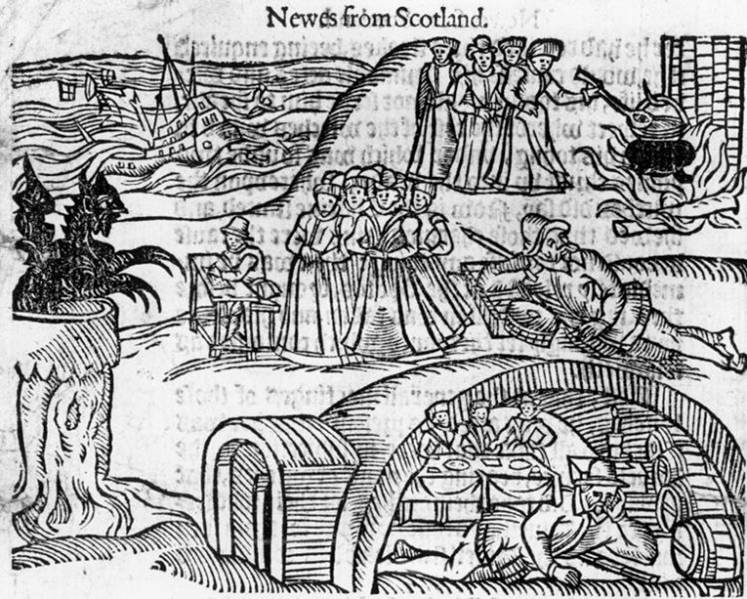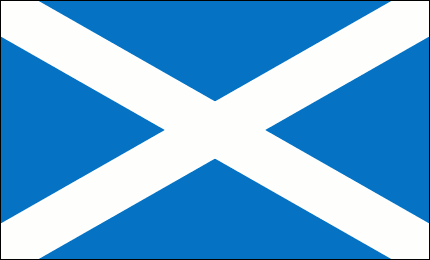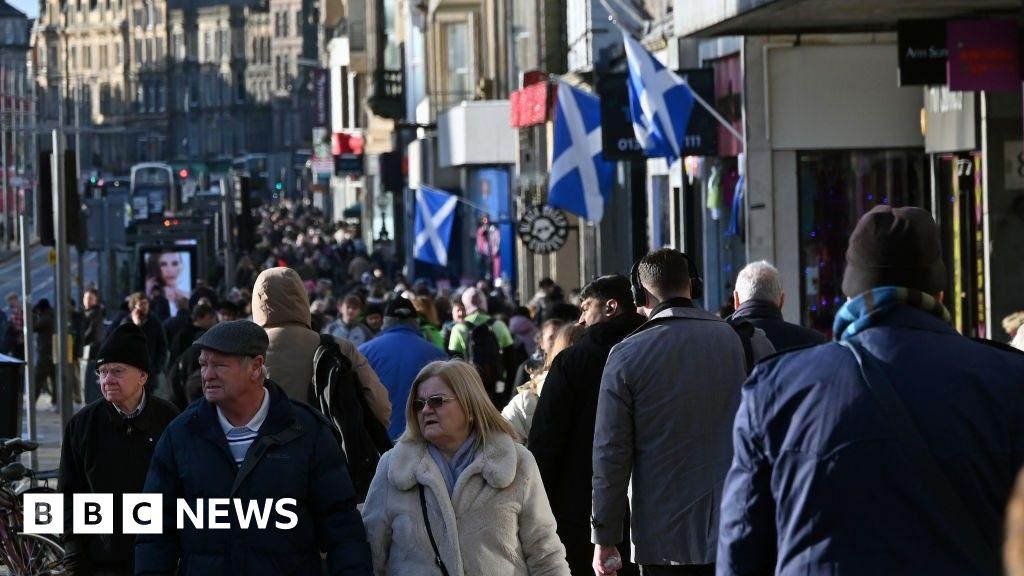World
National events remember Scotland’s accused witches – News, Paganism, U.K., Witchcraft, World

EDINBURGH, Scotland – Although events to commemorate those who were killed in Scottish witch trials have been held in Scotland for some years on a regional and local level, no national event has taken place – until now. Events were held in early June in Edinburgh and also at Dunfermline Abbey, where the names of some 4,000 people, all falsely accused, were read out.
The Weaving Creative Threads event in Edinburgh was held at the Scottish Storytelling Centre on June 2 and was organised by the Creative Coven, a group of female artists whose work has been inspired by the Scottish witch trials. The group say that their mission is to ‘explore the historical persecution of the Scottish witch hunts through the evocative and emotive power of the arts.’ The event, which featured artists, storytellers, authors, singers, and speakers alongside an exhibition and workshops was not for profit and was held as an artistic grass-roots reclamation and remembrance of the 4th of June, the historical date of the Witchcraft Act of 1563. Admission to this event was to partly fund the Creative Coven’s Memorial Grove for Scotland’s Accused Witches in the Caledonian Forest.
The North Berwick witches from a contemporary pamphlet, Newes From Scotland. [Public Domain]
Samantha Neill, one of the organisers of both events told the Pagan community after the event that
“Our National Day of Remembrance Ceremony for all of Scotland’s accused witches at Dunfermline Abbey, was, of course, as emotional as we all expected. This was the first event of its kind ever in Scotland and the turnout was truly humbling. We even had the wonderful Janine Phillips and her husband who had travelled from New York to be there and also at our main Weaving Creative Threads in Remembrance of the Scottish Witch Hunts event in Edinburgh on the 2nd.
The piobaireachd composed for the accused by Karen McCrindle Warren was played beautifully by piper Annabel Charlton and then the Declaration was read out by our founder of The Creative Coven, Rowan Morrison.
The simultaneous reading of the four thousand names by eight name-bearers will stay in my mind forever. To hear all of these being read out into a wind that began to whip around us, and on hallowed ground, the type of ground that the accused were deemed to be unfit to be laid to rest in, was very emotive.

Flag of Scotland
The poetry by Marianne L. Berghuis, a local Fife poet, and songs by Rena Gertz, an award-winning MOD singer, were wonderful, and the close of the ceremony was the final lament on the great highland bagpipes.”
Rowan Morrison says that, “The National Day of Remembrance Ceremony held on hallowed ground, was woven with hopes of healing for all who carry the ancestral wound of the burning times, and for the accused witches of Scotland who were denied death rites and a burial in consecrated earth. As we spoke the four thousand names, I felt a sense of deep peace move through and all around those who stood there, to bear witness to the grave injustice inflicted upon the daughters and sons of this land.”
Ewan McAndrew, Wikimedian in Residence at Edinburgh, told the press some years ago, “There is a very strong feeling out there that not enough has been done to inform people about the women who were accused of being witches in Scotland. There is still this Halloween concept surrounding them. The tragedy is that Scotland had five times the number of executions of women…There does seem to be a growing movement that we need to be remembering these women, remembering what happened and understanding what happened.”
Fife deputy provost Julie Ford, who laid a wreath at the memorial service for accused witch Lilias Adie, told the press back in 2019, “It’s important to recognise that Lilias Adie and the thousands of other men and women accused of witchcraft in early modern Scotland were not the evil people history has portrayed them to be, but were the innocent victims of unenlightened times. It’s time we recognised the injustice served upon them.”
In 2022, Nicola Sturgeon, then the First Minister of Scotland, issued an apology to those accused of witchcraft, noted, “Firstly, acknowledging injustice, no matter how historic is important. This parliament has issued, rightly so, formal apologies and pardons for the more recent historic injustices suffered by gay men and by miners.”
Sturgeon then added, ” Second, for some, this is not yet historic. There are parts of our world where even today, women and girls face persecution and sometimes death because they have been accused of witchcraft. And thirdly, fundamentally, while here in Scotland the Witchcraft Act may have been consigned to history a long time ago, the deep misogyny that motivated it has not. We live with that still. Today it expresses itself not in claims of witchcraft, but in everyday harassment, online rape threats and sexual violence.”
From these comments, we can see a groundswell of opinion within Scotland, both within the establishment and in other groups, that the injustices suffered by those who were accused of witchcraft and executed in the country needs to be addressed and acknowledged. The recent events in Edinburgh and Dunfermline lend a welcome weight to these efforts.
Samantha has told us that David Torrance MSP lodged a parliamentary motion in May at Holyrood. “The month of June marks the passing of the Witchcraft Act 1563. The Act called for the death penalty for all offences and resulted in the execution of up to two thousand people over the next century and a half. The Creative Coven are holding a National Day of Remembrance for accused witches. The day includes an exhibition and a cauldron of workshops to choose from and is the main event of an artistic grass-roots reclamation and remembrance of the 4th of June – the historical date of the Witchcraft Act of 1563. The not-for-profit event will help to fund a living, breathing, Witches Memorial Grove in the Caledonian Forest. I have lodged a motion in the Scottish Parliament in recognition of the estimated 3,837 people accused of witchcraft in Scotland and the efforts of the group”.










